Middle East Eye's picks of the year 2022

In many ways, 2022 for the Middle East and North Africa was defined for once by events elsewhere: Ukraine.
Food and energy security, the influx of Turkish and Iranian drones, shifting geopolitics - all have left their mark across the region in the wake of Russia's February invasion.
Elsewhere, this year has been the most deadly for Palestinians in the occupied West Bank, and for Israelis, since the Second Intifada. Israel's killing of Al Jazeera journalist Shireen Abu Akleh silenced a familiar voice in homes from Mauritania to Iraq, and December ends with the foreboding prospect of Israel being ruled by the most racist and right-wing government in its history.
Iraq saw political paralysis and instability turn deadly in August, as followers of Muqtada al-Sadr rampaged around Baghdad's Green Zone. And to the east, women-led protests raged against the death of Mahsa Amini, the 22-year-old Kurdish woman arrested by the so-called "morality police" for allegedly wearing her mandatory hijab incorrectly.
Below is a selection of some Middle East Eye journalists' favourite stories of the year. It's far from exhaustive, but a great place to start as we reflect on what has passed and what is to come.
Stay informed with MEE's newsletters
Sign up to get the latest alerts, insights and analysis, starting with Turkey Unpacked
Exclusive: The Jerusalem plot held by the UK as future site of embassy in Israel
By Dania Akkad / Chosen by Simon Hooper, Head of Investigations
Extract: MEE visited the plot on Monday. The area is empty scrubland apart from a few trees, sitting between Hanoch Albek Street and Shmeul Lupo Street in Jerusalem's southeastern Talpiot neighbourhood.
It is adjacent to a proposed site for a new US embassy which is also on land previously held by the British, and appears to lie partially on the 1949 armistice line, known as the Green Line, separating Israel from the Palestinian territories of East Jerusalem and the West Bank.
Dania Akkad has written a stack of amazing, award-winning stories this year, but this is my favourite, not least because, if Dania had followed my advice, the papers containing the incredible story of the Orange Plot might have been left gathering dust in the archives.
We set out to discover if the UK held land in Jerusalem earmarked as a future embassy site when its existence was alluded to after Liz Truss announced she would review the location of the embassy in Israel during her short-lived premiership.
Dania wanted to go to the National Archives to delve into foreign office files. I was sceptical: all the sensitive and interesting stuff was still secret, misplaced, or buried in mountains of paper that would take months to locate and make sense of, I said - but Dania went anyway.
What felt like about five minutes later, she had found a map of the Orange Plot and everything quickly came together. As well as being a huge exclusive and a lesson to journalists in ignoring your editors, this is a contribution to our historical understanding of British policy towards Palestine and Israel in the years since 1948.
'I was standing next to Shireen': Eyewitness account of killing of Al Jazeera journalist
By Shatha Hanaysha / Chosen by Nadda Osman, Journalist and Editor
Extract: It was an Israeli sniper that shot at us. We were not caught up in crossfire with Palestinian fighters like the Israeli army claimed.
One of the most defining moments of 2022 for me was the killing of Palestinian-American journalist Shireen Abu Akleh at the hands of Israeli forces while she reported on a raid on Jenin's refugee camp.
This brave account by fellow journalist Shatha Hanaysha details how the events unfolded, and clearly describes the lead-up to Abu Akleh's killing from an eyewitness perspective. Hanaysha was beside Shireen as she was hit - and under fire herself - and here accurately and clearly describes the terrible scene.
Considering Al Jazeera's Abu Akleh was an icon and respected journalist to people around the world, this piece manages to depict the terror of what happened and the importance of journalism, and serves as an accurate and important record.
Hajj lottery for western pilgrims descends into farce
By Rayhan Uddin / Chosen by Areeb Ullah, Journalist
Extract: The problems, as told by a number of people to MEE, include: not being told the status of their application days after the deadline, payments failing, bookings being cancelled after payments had already been made, tour packages and prices being different to what was advertised and a complete lack of a complaints system or accountability.
Middle East Eye was the first news outlet in the world to report on Saudi Arabia banning travel agencies across the West, ending the practice of letting travel agencies arrange Hajj pilgrimages.
The changes ended an industry that has been around for decades and is worth millions of dollars. Rayhan captured the anguish and fear felt by many Muslims in Britain and across the West when Riyadh suddenly decided to ban travel agencies organising the Hajj.
He spoke to families worried the new Motawif system would not accommodate particular cultural needs such as language and food for their elderly relatives. Prospective pilgrims told him they were concerned about giving thousands of dollars to an untested system.
I particularly loved the intro Rayhan wrote for this piece. It captured the frustration felt by many Muslims and the desperation of wanting to use a new system to complete the fifth pillar of Islam.
'It's unfathomable': Thousands of Saudis made homeless by sweeping demolitions in Jeddah
By MEE correspondent / Chosen by Heba Nasser, Editor
Extract: Some people have been forced to lay out their furniture in the open, taking shelter under bridges, according to eyewitness accounts. One resident said some families are sleeping in their cars. In Ghulail, one of the first areas to be wiped out, before-and-after satellite images show the entire historic and popular area in ruins.
When Middle East Eye published the story of mass displacement in Saudi Arabia's Jeddah to make way for grand redevelopment projects, the plight of a million people had gone noticeably unreported.
I remember being shocked by the scale of the evictions when the journalist, who sadly can't be named for security reasons, pitched the piece. How had this been going on for three months without any headlines? But this is my colleague's strength: he is attuned to untold and undertold stories across the Arab world.
This article weaves seamlessly through Saudi Arabia's ambitious Vision 2030 economic plan and the human cost in its wake. It tells the story of Jeddah residents who were taken by surprise by the demolition order and given little notice to plan their relocation or say goodbyes.
It also highlights the low-income families - both Saudis and immigrants - who are struggling while living in the Arab world's richest country, giving readers a glimpse of what is under the petrodollar veneer.
Weeks after the article was published, Saudi officials accused the media in London and Washington of "exaggerating" the case, despite overwhelming evidence to the contrary, and it was followed up by human rights groups.
Iraq's 'theft of the century': How $2.5bn in public money 'evaporated'
By Suadad al-Salhy / Chosen by Lubna Masarwa, Jerusalem Bureau Chief
Extract: The classified report obtained by MEE reveals how a web of companies and related bank accounts was created to enable trillions of dinars to be stolen through fake cheques purportedly issued and then cashed for tax deposit refunds from the IGCT’s accounts at Rafidain Bank. According to the report, the balance of the accounts at the time of the investigation should have been 3,531,501,702,289 dinars (about $2.4bn). But the actual balance was just 145,050,309,732 dinars ($99m).
It’s no surprise that Suadad al-Salhy won Journalist of the Year at the Drum Online Media awards. Her brave work is always full of insight, and she writes with a knowledge and confidence that only someone with decades of experience can have.
Though much of her reporting this year has been preoccupied with the Iraqi political crisis, during which she constantly revealed the plots and schemes of Muqtada al-Sadr and his foes in the Coordination Framework, I thought her work on Iraq’s “theft of the century” really stood out.
Suadad got her hands on key documents, and delivered the most comprehensive investigation into the shocking “evaporation” of $2.5bn from a state-owned bank. The case continues to rock Iraq, and her story is a benchmark for everyone following up on the issue.
Digital nightmare: The Arab dissidents ruined by phone hacking
By Dania Akkad / Chosen by Nick Hunt, Managing Editor
Extract: A figure walks straight towards me. He introduces himself: it's only then I realise that the man, wrapped in a thick scarf and heavy suede jacket on this hot June day, is the host of The Ghanem Show - or, at least, he was. Al-Masarir tells me, after we find a gnarly log to sit on, that he stopped filming after the events of 2018. "I couldn't do my show, I couldn't do anything," he explains, carefully eyeballing in turn a dog walker, a family and two men passing by.
Dania Akkad's piece "Digital nightmare: The Arab dissidents ruined by phone hacking" took as its starting point the legal action being taken in London against Bahrain, Saudi Arabia and the United Arab Emirates, which are accused of targeting UK-based dissidents.
Leaks such as the Pegasus Papers reveal the industrial scale of the criminality yet seldom hint at the emotional and psychological cost to the individuals, at the human stories behind the scraped data.
But Dania, working with Head of Video Mohamed Hassan, revealed how those affected had suffered arson attempts, threats and surveillance from those who seek to shut them down
British-Iraqi dissident Anas Altikriti, 53, explained: "It's the unseen, the creeping up on you in your most safe and secure and sanctified place."
As Marwa Fatafta, MENA policy manager for Access Now, put it, surveillance is a form of violence. "You are always in a perpetual state of fear and anxiety, not only about yourself but also about others."
The Star of the East: Umm Kulthum and the birth of the Arab diva
By Nadda Osman / Chosen by Zeinab Edah-Tally, Head of Social Media
Extract: Not everyone in Cairo immediately warmed to Umm Kulthum, due to her peasant background and a demeanour that was considered working class and uncouth. However, the strength of her voice and abilities as a performer slowly turned doubters into believers.
The story of Umm Kulthum never fails to amaze me. Nadda Osman gave us a snapshot of her incredible journey to stardom, paired with beautiful illustrations by Mohamad Elaasar that brought a legendary artist to life once more.
Egypt's Umm Kulthum is a household name across the globe, despite dying in 1975 at the age of 76. With the ever-changing world of social media, her iconic voice continues to transcend time and capture the attention of new generations. Every so often we see a new viral video of a younger audience being mesmerised by one of her many iconic songs.
Born Fatima Ibrahim es-Sayyed in 1898 into a relatively poor family in the Nile Delta city of El Senbellawein, she had to navigate through a society that did not favour women in the spotlight. Yet, with the support of her family, and of course her unwavering talent, she was able to pave the way for so many women after her.
'It can't be unseen': The survivors of the Sabra and Shatila massacre
By Rita Kabalan / Chosen by Daniel Hilton, Head of News
Extract: "When the militias shouted for them to surrender, my brothers, Abbas and Hamza, and my dad went outside. They lined everyone up along the street and just filled their bodies with bullets. They killed Abbas. They shot Hamza in the legs. All the bodies lined up next to him fell on top of him. He remained quiet and didn't make a sound. My father was shot seven times but he survived."
Is it possible for something to be famous and forgotten at the same time? I think Shatila and Sabra, the Palestinian camps in Beirut and the massacre named after them, could fit the criteria.
September was the 40th anniversary of the three days in which Israeli-backed Christian Lebanese militiamen rampaged through the camps, killing up to 3,500 people. We wanted to approach the date slightly differently, and decided to profile survivors, using portraits and their words alone.
I like this kind of format. You get a real sense of the people and what's important to them. But Rita Kabalan, who took some wonderful photographs and collected some of the most haunting testimony I've ever read, exceeded all expectations. You can see in the survivors' faces how they've opened up to her, and their words will stay with you for weeks.
Watermelon: A slice of Palestinian resistance
By Rakan Abed El Rahman and Khaled Shalaby / Chosen by Daniel van Taarling, Video Editor
Extract: "The watermelon has become nature's own Palestinian flag. A simple and juicy way of passing our heritage and history to the next generation."
Watermelons are loved by many people around the world as a juicy and refreshing snack, often shared with friends and family on hot summer days. But the first time someone hears that they are seen by Palestinians as a symbol of resistance it might come as a surprise, as most people do not typically associate fruit with with political protests.
It slowly starts to makes sense, since the fruit and the Palestinian flag share the same colours. However, the connection goes much deeper than that.
This video briefly recaps the history of how the watermelon gained its status as a resistance symbol for Palestinians, from initially being used to circumvent a ban on displaying the Palestinian flag to becoming something that people could get arrested for.
Decades later, the watermelon still carries deep value for Palestinians and has remained a staple of Palestinian culture.
Iran's raging Mahsa Amini protests draw sympathy from all corners of society
By MEE correspondent / Chosen by Alex MacDonald, Journalist and Editor
Extract: As teargas swirled on the streets and authorities moved to dispel the women who had gathered in rage and defiance, Poori, a 31-year-old physics graduate, insisted on standing her ground. "I was out there. I feel like my chest and throat are burning as a result of teargas," she told Middle East Eye. Though Poori willingly wears a headscarf, she disagrees with Iran's strict laws on women's dress. "I saw the amazing moment when the other girls were twirling their scarves in the air and shouting 'Woman, life, and freedom'."
Journalists in Europe often like to tout the difficulty of their jobs and the pressures and difficulties they face in their work, but when compared with the struggles many reporters in the Middle East have to get the truth out to the world, our concerns can seem pretty trivial.
Each year Middle East Eye publishes articles under the byline "MEE correspondent" for those journalists who risk arrest, threats or even death for doing their work in their countries. Their reporting is often the hardest to accomplish, yet they are unable to publicly take credit for their work.
The recent and continuing uprising in Iran has been one such example, where both our reporter and the people they spoke to have largely had to keep themselves anonymous to avoid retaliation.
The demonstrations following the death in custody of Mahsa Amini, a Kurdish woman arrested for allegedly wearing her mandatory hijab incorrectly, are still raging, and the work being done by MEE's reporters on the ground is vital for getting the truth out to the world. They deserve deep respect for doing so without being able to see their bylines on such important work.
The problem is men: Muslim women speak out against abuse in the US
By Zainab Iqbal / Chosen by Sean Mathews, Journalist
Extract: The night before Khadija left him, she and her husband had had a fight. She told him he was cruel and the marriage was over. He punched her. But little did he know, it would be the last punch. She told him she wanted a divorce. He didn't want to give it to her. So, early in the morning, she packed her bags and never looked back.
One of the best pieces of the year was Zainab Iqbal's standout article on Muslim women speaking out against abuse in the US, which was shortlisted for the Write To End Violence Against Women awards and Ameja's Walid El-Gabry Memorial Award. Zainab is at her best when she is speaking with members of the Muslim community, giving readers a unique glimpse into a part of US society that is often overlooked.
The article starts in gripping detail with the murder of Sania Khan by her husband, which Zainab uses to introduce the reader to Khadijah, a Muslim woman who escaped her own abusive relationship. Domestic violence is prevalent throughout the US, but data indicates the numbers are even higher within the Muslim community. Zainab did a fantastic job bringing in voices at the frontlines of this issue, like the Texas Muslim Women's Foundation and the Peaceful Families Project.
Zainab documents how Muslim organisations and religious leaders are trying to stamp out violence against women, which many abusers falsely justify on Islam. She also discusses how culture and tradition within the community leaves many women afraid to speak out about violence.
The article is crafted with a combination of real-life stories and a dive into Islamic ethics and community responsibility. This is a story that rightfully deserves more attention, and I hope Zainab stays on the beat in 2023.
Shireen Abu Akleh was executed to send a message to Palestinians
By Jonathan Cook / Chosen by Megan O'Toole, Columns Editor
Extract: "The truth is that a decades-long occupation can only survive through wanton - sometimes random, sometimes carefully calibrated - acts of terror to keep the subject population fearful and subdued."
On 11 May 2022, veteran Al Jazeera journalist Shireen Abu Akleh was shot in the head by an Israeli sniper in the occupied West Bank city of Jenin, eliciting a global outpouring of grief and rage.
For journalists who live and work in Israel and the occupied Palestinian territories, it was also a stark reminder of the dangers they face every day. Jonathan Cook, who has spent two decades reporting on the conflict, wrote of the uphill battle he has waged in attempting to hold the Israeli state accountable for its crimes.
His piece also highlighted the depth of western hypocrisy, as the US and Europe have issued statements of "sadness" while continuing to enable the impunity of their strategic Middle East ally.
Russian mercenaries near Sudan accused of killing hundreds as African gold rush intensifies
By Mohammed Amin / Chosen by Oscar Rickett, Journalist
Extract: "What we saw was very brutal and bloody... slaughtering the traders and miners, as well looting the gold and money."
Mohammed Amin has been fearlessly reporting on what is really going on in Sudan for a long time now.
Earlier this year, his work for Middle East Eye was recognised by the Rory Peck Trust, which awarded him the prestigious Martin Adler Prize. Since the coup of 25 October 2021, Mohammed has documented the military's abuses and written a number of stories on its ties to Russia and the Wagner Group paramilitary.
Mohammed uncovered a massacre perpetrated by Wagner Group mercenaries in the neighbouring Central African Republic, speaking to survivors, gathering evidence and bringing the story back home to Sudan, where families were left to grieve.
This is one of a number of his stories on the subject.
Why a Russian conflict in Ukraine really matters to Turkey
By Ragip Soylu / Chosen by Huthifa Fayyad, Editor
Extract: "Ukraine is like a dam that stops further Russian influence and pressure in the region," a Turkish official tells Middle East Eye. "If Ukraine falls, it will have direct implications on Turkey."
When Russia began building up its forces on the Ukrainian border and beating the drums of war early this year, very few observers paid attention to Turkey's vital role in the conflict.
In this story, published a month before Moscow launched the invasion, MEE's Turkey Bureau Chief Ragip Soylu breaks down everything at stake for Ankara.
Historical animosity? Check. Geostrategic interests? Check. Mediating role? Check. Arms cooperation? Check. Impact on tourism? Check.
Relying on a wide range of sources and nuanced reporting, Soylu skillfully forecasts how the war was going to affect Turkey.
This excellent piece is rivalled only by Soylu's own original and exclusive follow-ups during and after the war, from Ankara's denial of closing the Black Sea to Russian warships, to reporting on Ukraine's use of TB2 Bayraktar drones to bomb oil depots deep inside Russia and his analysis of the effectiveness of the Turkey-made drones in the war.
Abdulmecid II: Artist, musician and the last caliph of Islam
By Yusuf Selman Inanc / Chosen by Shafik Mandhai, Editor, Discover
Extract:"Typically dressed in the manner of a French monsieur, with a regally placed fez signalling his Ottoman roots, he was a man as comfortable in the midst of European aristocracy as he was being the heir to the last Islamic caliphate."
To call Middle Eastern history during the late 19th and 20th century eventful would be a huge understatement, but, while we know a lot about what happened, the lives of many important figures have been forgotten amid the tumult.
One fascinating figure was Abdulmecid II, nominally the last caliph of Sunni Islam, but also a bit of a renaissance man: a musician and accomplished artist, just at ease painting mosque interiors as he was painting orientalist-inspired nude hammam scenes.
In his article, Yusuf Selman Inanc paints a concise portrait of a man who demonstrated there is no real conflict between European and Islamic values.
Sabra and Shatila: Jewish nurse recounts horrors of Palestinian massacres
By Umar Farooq / Chosen by Azad Essa, Senior Reporter
Extract: “The Phalange came in and started to kill people. They started to massacre people, but in the most horrendous way with axes and knives. Some of these pictures, some of these stories, are just horrendous," she said.
This year marked 40 years since right wing Lebanese militia (with the complicity of Israeli military) murdered thousands of Palestinians and Lebanese in the Shatila and Sabra refugee camps in Beirut.
In this feature, Umar Farooq spoke with Ellen Seigel, a Jewish-American former nurse, who was present at the refugee camps as the massacre unfolded. Siegel's testimony brings a Jewish American perspective to one of the most heinous crimes of the early 1980s.
The story also illustrates the deep work and commitment of several Jewish Americans who were early pioneers in shifting attitudes within their community towards Israel, much of which is bearing dividends today.
Russia is our enemy too, say Muslim fighters readying for war in Ukraine
By Sean Mathews / Chosen by Joe Gill, Chief Sub-Editor
Extract: Groups like Right Sector attracted fighters from across the former Soviet Union. Many came from recent conflicts along its periphery in places like Chechnya, Georgia, and Nagorno-Karabakh.
Sean Matthews has led the way in finding unique and surprising angles and insights into the Ukraine-Russia conflict.
Back in early January, more than a month before Russia invaded, he spoke to a number of Muslim fighters, Crimean Tatars and volunteers from the former Soviet Union, who were already fighting the Russians in Ukraine.
The piece was a startling example of the old adage my enemy's enemy is my friend.
He spoke to "Ninja", a veteran of the Ukraine post-2014 war, helping to forge MEE's non-conventional reporting on this conflict.
'Ripping it apart': How an anti-discrimination law transformed Istanbul
By Naomi Cohen / Chosen by Ragip Soylu, Turkey Bureau Chief
Extract: As the saying goes, land in Istanbul is gold. The earliest case of what we now call land speculation began at the close of the nineteenth century. Residents with money scrambled for their chip of the nugget, buying up properties especially along the edge of the peninsula above the Golden Horn.
Naomi's story on Istanbul's property scene in conjunction with minorities in Istanbul is a vivid documentation of personal loss and legal fights over the fate of the ancient city.
By using really detailed maps and visual narrators, she explains how centuries-old plots have been changing hands after the fall of the Ottoman Empire.
What she captures perfectly is the often missed connections elsewhere, such as telling how the new law that has given a right to the Christian and Jewish foundations to reclaim their old properties actually had a worsening impact on the land and the historically important cultural heritage and buildings.
Some tenants who have lived or worked at the properties for decades had to be evicted under the name of redevelopment. On the surface, it appears a win for the minority foundations, but actually it is also a story of personal loss.
What I like the most about this story is it tells a really complex issue by referencing both the human side and its legal and historic aspects.
Mufti Menk, a Zionist rabbi and the politics of faith-washing in Dubai
By Azad Essa / Chosen by Leena Al-Arian, Columns Editor
Extract: The rabbi next to Menk wasn't any ordinary religious leader: he was none other than Rabbi Levi Duchman, the UAE's chief rabbi and a prominent figure in facilitating deeper ties between the UAE and Israel. The iftar, too, wasn't any ordinary event. According to the Emirates News Agency, the iftar was part of the Dubai Ramadan 2022 initiative, organised by the Islamic Affairs and Charitable Activities Department. Quoting government sources, the news agency called the iftar an attempt "to consolidate the principle of moderation, wisdom and tolerance, as well as rejecting racism, under the umbrella of human fraternity".
Since 2020, MEE journalist Azad Essa has been closely investigating the deepening ties between Muslim “leaders” and pro-Israel figures. His reporting and analysis on the highly influential Zimbabwean Muslim televangelist Mufti Menk’s meeting with Rabbi Levi Duchman and other problematic figures is extremely valuable and rare to find in an English outlet.
Duchman, the UAE’s chief rabbi, has played a leading role in building closer relations between the UAE and Israel. As the Israeli military was conducting violent raids on Al-Aqsa Mosque and attacking Palestinian worshippers during the holy month of Ramadan, the Israeli government was able to point to “faith-washing” meetings such as Menk’s iftar in the UAE as a soft power strategy to promote its image.
With more Arab countries moving towards normalisation with Israel, Essa highlights the complicity such Muslim "leaders" have both in the continued oppression of their people and in normalising ignorance.
Leicester riots: How Hindutva nationalism pushed a city to the brink
By Areeb Ullah / Chosen by Rayhan Uddin, Journalist
Extract: The city has never seen tensions reach this level between its Hindu and Muslim communities, with the two groups sharing a common history of fighting off racists who targeted them during the 1960s and 70s.
In September, violent confrontations led by young Hindu men against Muslims in Leicester, one of the most diverse cities in the UK, led to scores of arrests and global headlines.
How did decades-old social and religious coexistence briefly break down in the English Midlands, and what did it have to do with the Hindutva political ideology?
Middle East Eye's investigative reporter Areeb Ullah went to Leicester in the aftermath of the violence to find out.
There, locals painted a picture of how the arrival of new demographics from different parts of India, a highly charged cricket match and the growing influence of Hindu nationalism came to a head in a city where diverse communities were usually united in their fight against racism.
The piece, for which Ullah unsurprisingly faced a backlash from nationalist trolls, painted an illuminating image of how a city was pushed to the brink, centring the voices of those who lived through it.
Meatballs and militancy: How a Swedish king became the bane of the Ottoman Empire
By Yusuf Selman Inanc / Chosen by Indlieb Farazi Saber, Journalist
Extract: Charles's sojourn in the Ottoman Empire would have a lasting impact on Swedish culture, giving the country its word for "uproar" or kalabalik and introducing the Scandinavians to one of their most iconic foods - meatballs.
Yusuf Selman Inanc offers an insight into a significant moment in 18th century power politics. He describes how Sweden's King Charles XII's heady mix of ambition and stubbornness led to the eventual downfall of his country's bid to become a major European power.
Defeated by the Russians, the determined king, still seeking power, sought protection and approached Ottoman Sultan Ahmed III, requesting a safe haven for just over a week. Turkish hospitality offered the town of Bender in Moldova, which at the time fell under "Turkish territories", to Charles and his men. The agreed eight-day stay became five years.
As the political landscape was rapidly changing around him, Charles used his extended stay to plot his revenge against the Russians while demanding a limitless budget from his Ottoman hosts.
His eventual forced return by the Turks to Sweden saw him leave his hosts with financial debts. He also left taking language and food with him, including the Turkish kofte, which would later become the famed Swedish meatball.
Chef Joudie Kalla on preserving Palestinian cuisine, activism, and 'shadow banning'
By Mohamed Hashem, Khaled Shalaby and Anas Alaa / Chosen by Mohamad Elaasar, Designer
Extract: "The whole point of this was not to be generalised. I wanted it to be very specific to where I'm from and my family is, to kind of celebrate and highlight Palestinians."
This is an easy-going and enjoyable interview to watch between MEE's Mohamed Hashem and chef Joudie Kalla, author of Palestine on a Plate.
It's an interview that I've come back to rewatch several times. The balance of discussing the need to hold on to one's identity - an existential matter for Palestinians - and keeping the conversation lighthearted and fun is refreshing to see.
Also, anything to do with food, I'm hooked.
Burying bad news: US condemned over report on Shireen Abu Akleh's killing
By Umar A Farooq, Zainab Iqbal, Azad Essa / Chosen by Yasmeen Altaji, Intern
Extract: "That's what accountability would look like, in my opinion. We're not going to get accountability for shootings and murder, but there should be a shift of how we interpret and understand information as a result of these findings."
This piece looks beyond static updates on the case of Shireen Abu Akleh by including comment from renowned experts, highlighting voices from Palestinian community members in the US and beyond.
It provides digestible context both in writing and in the form of a simple but effective visualization.
A poignant analysis of an important issue realised by collaboration between three members of MEE's US desk.
Middle East Eye delivers independent and unrivalled coverage and analysis of the Middle East, North Africa and beyond. To learn more about republishing this content and the associated fees, please fill out this form. More about MEE can be found here.


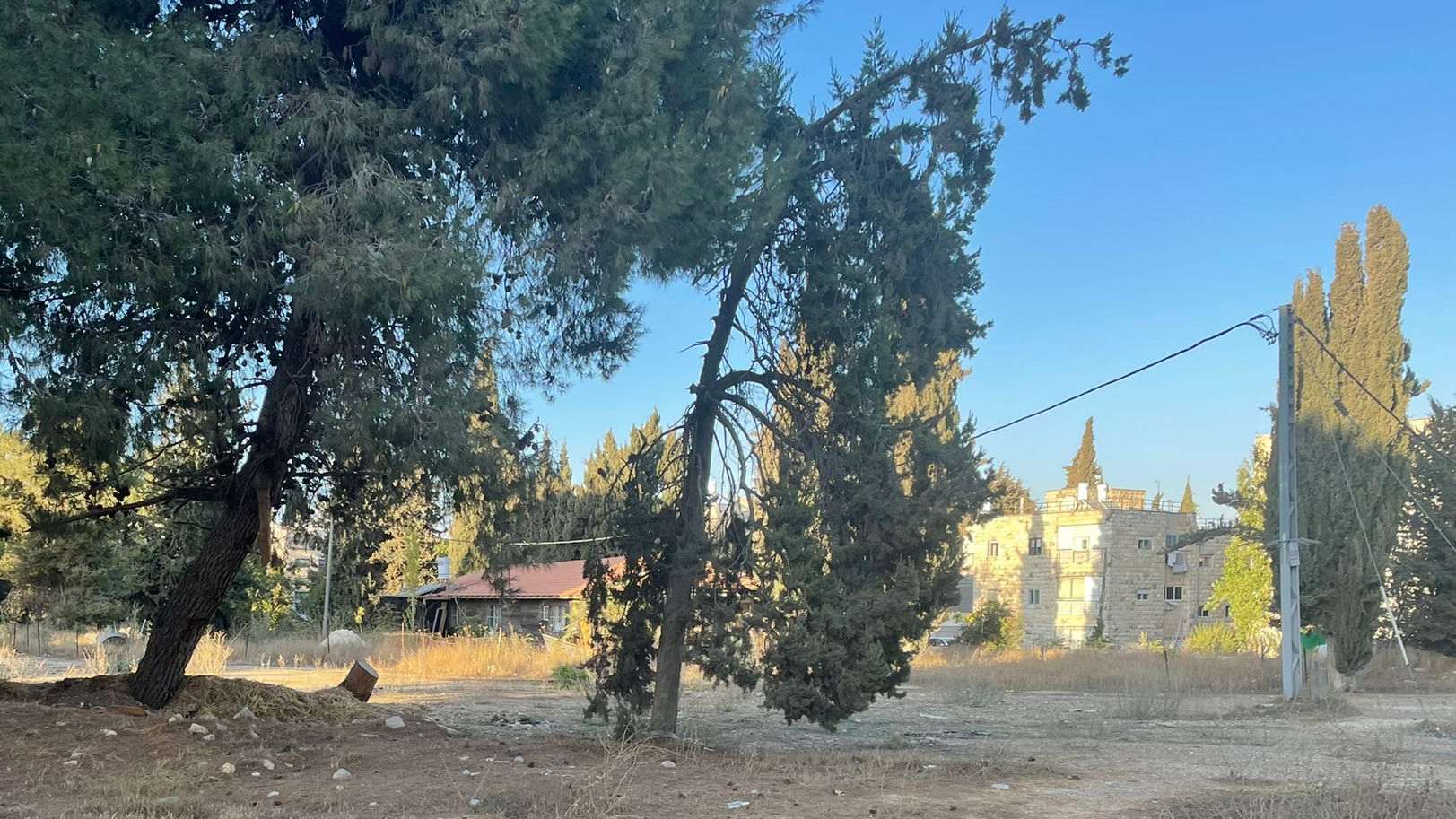
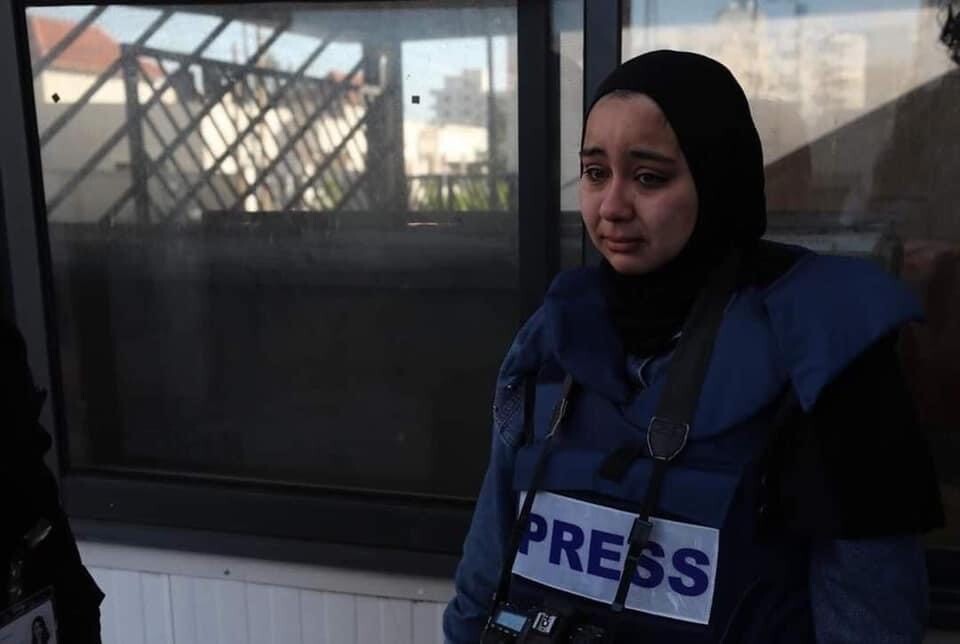


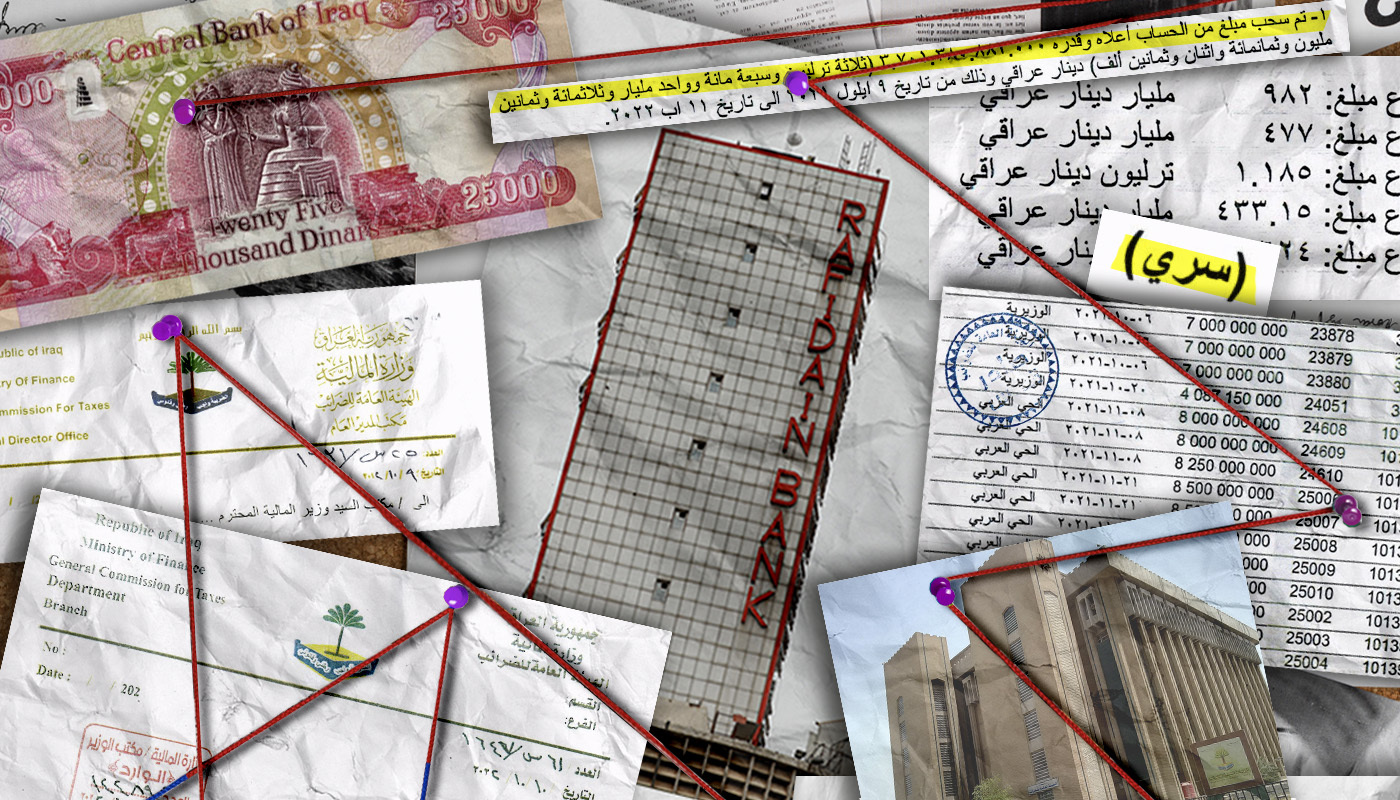

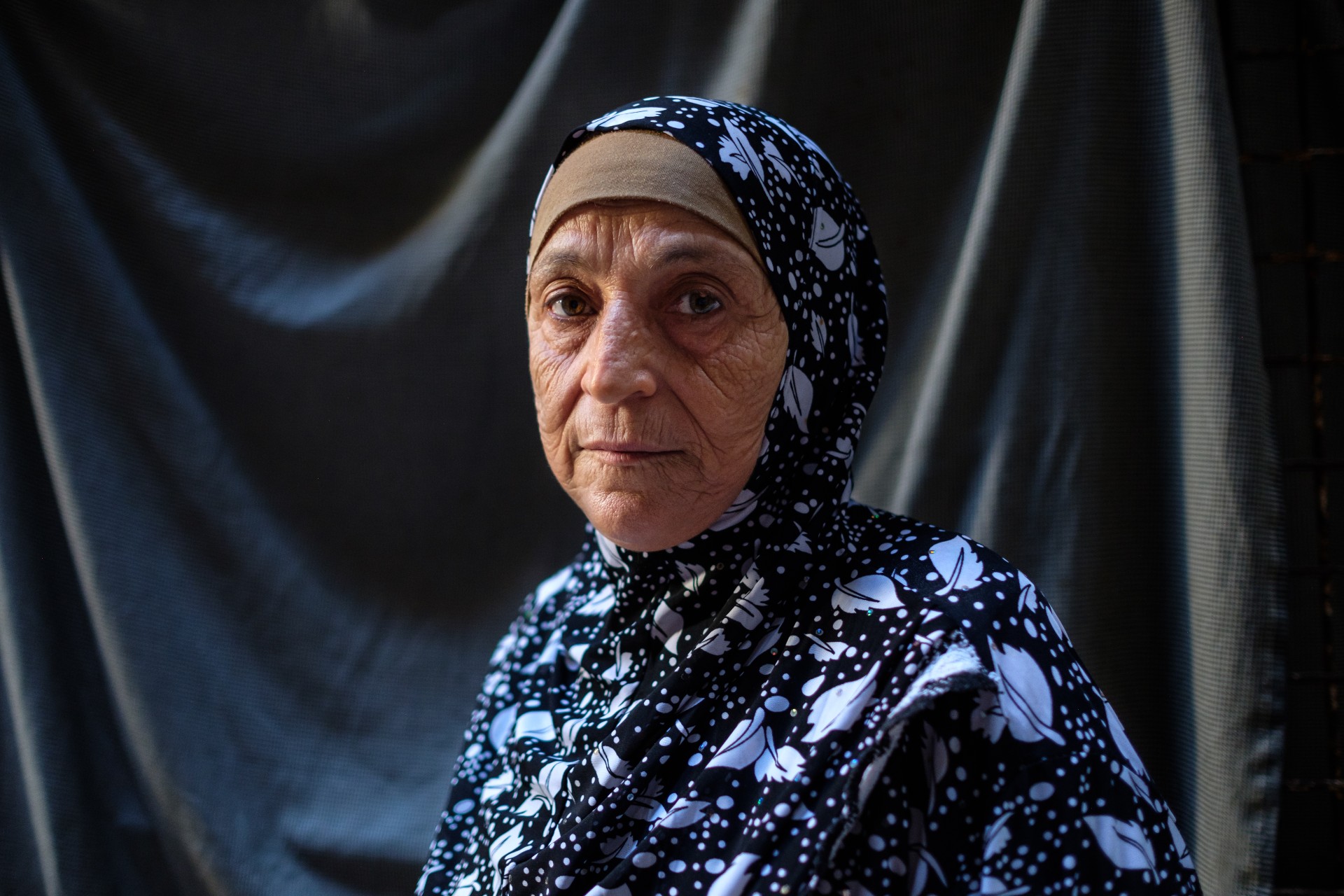
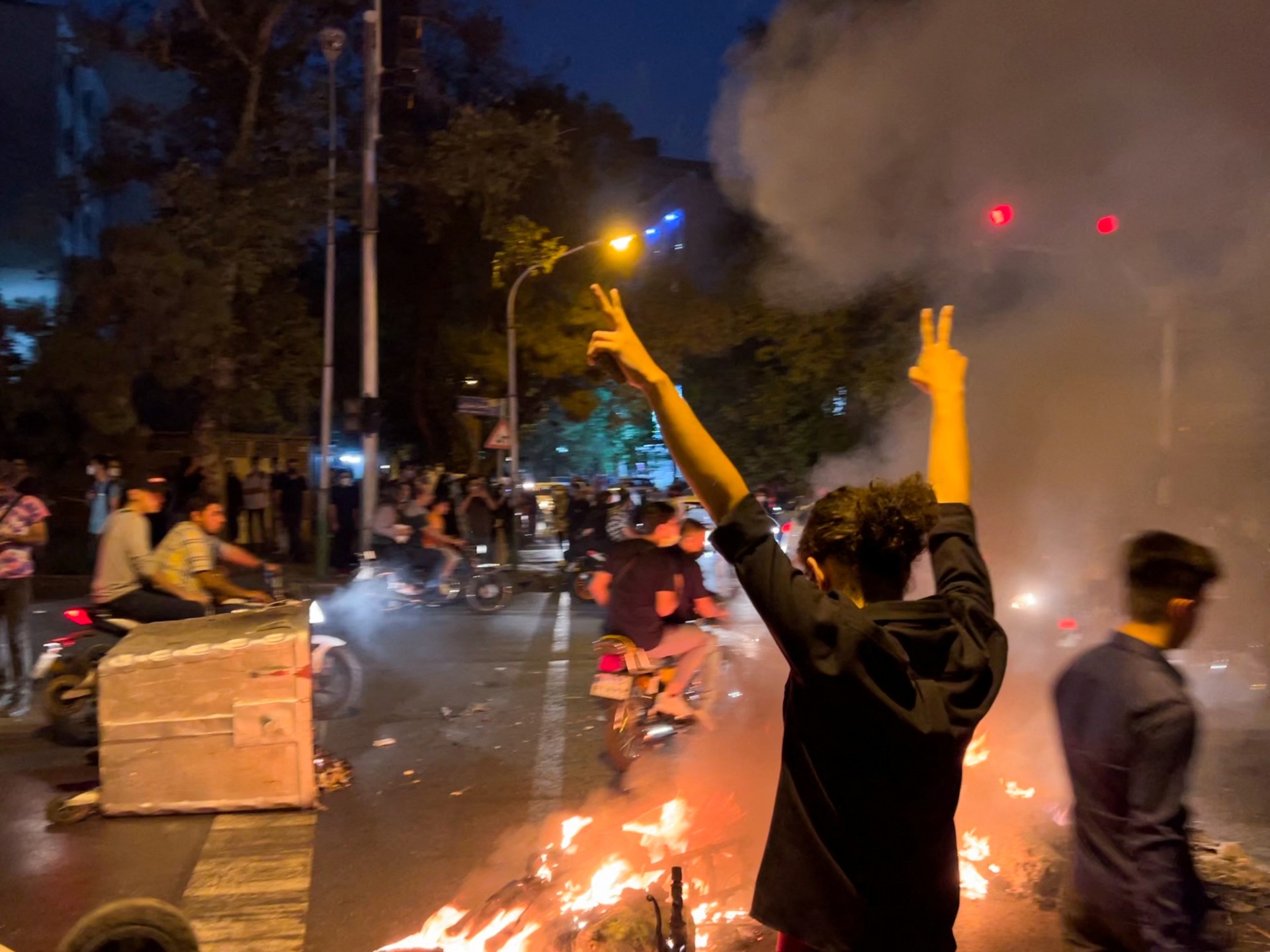


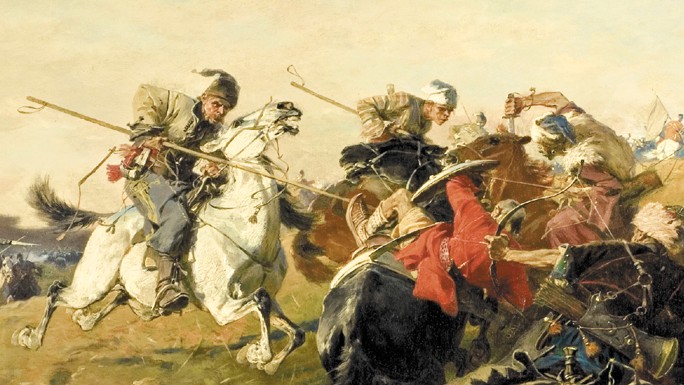

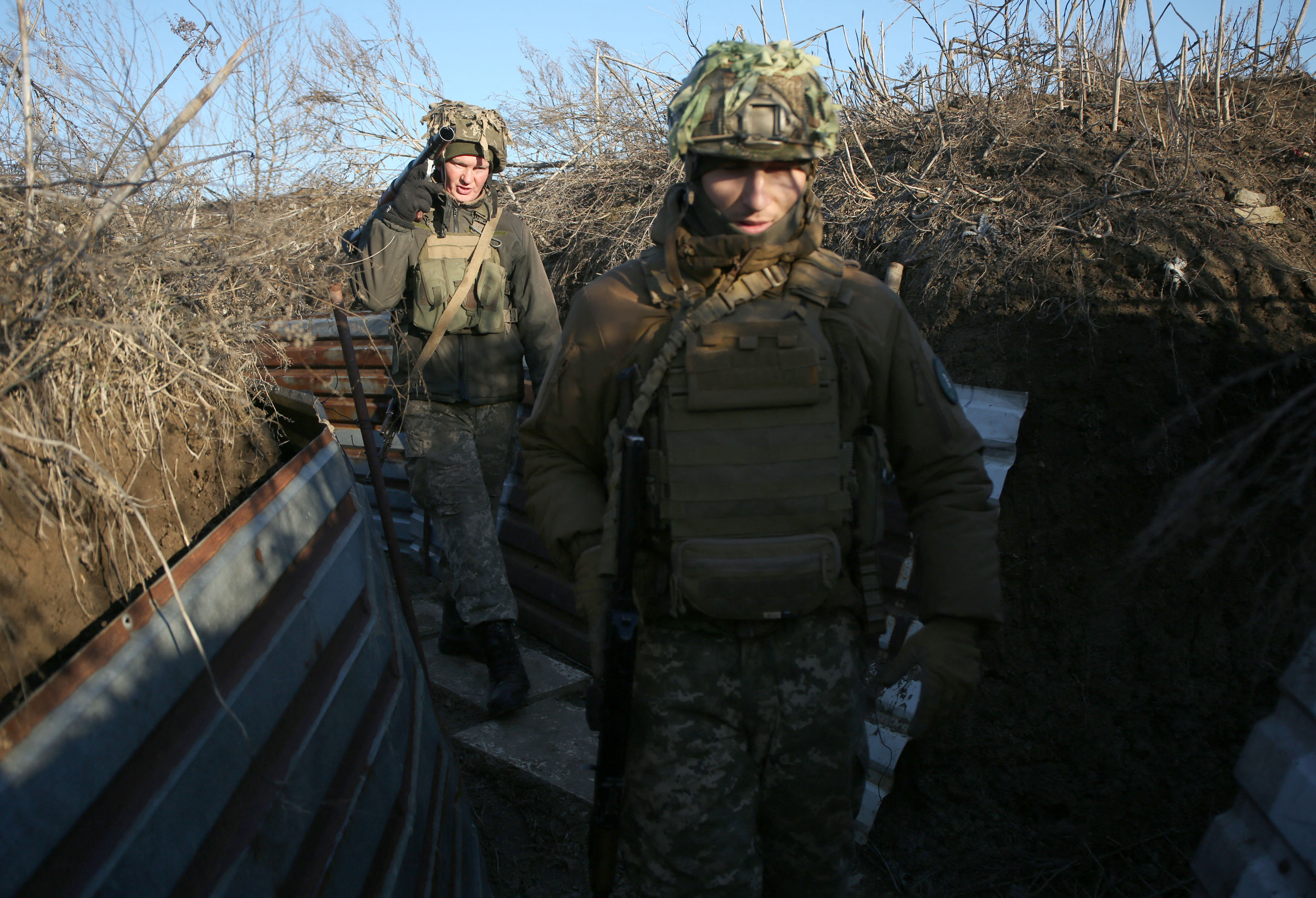
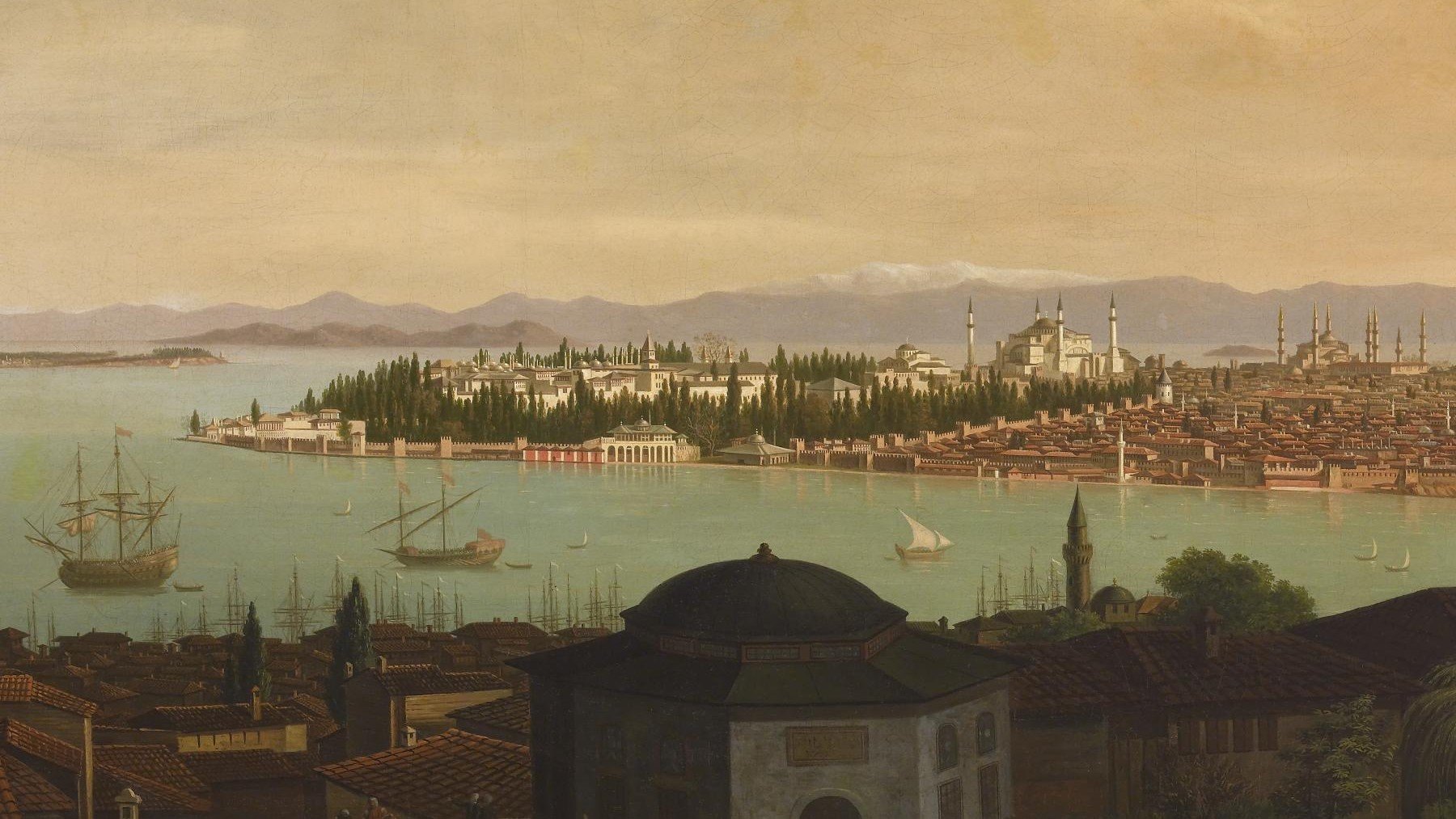

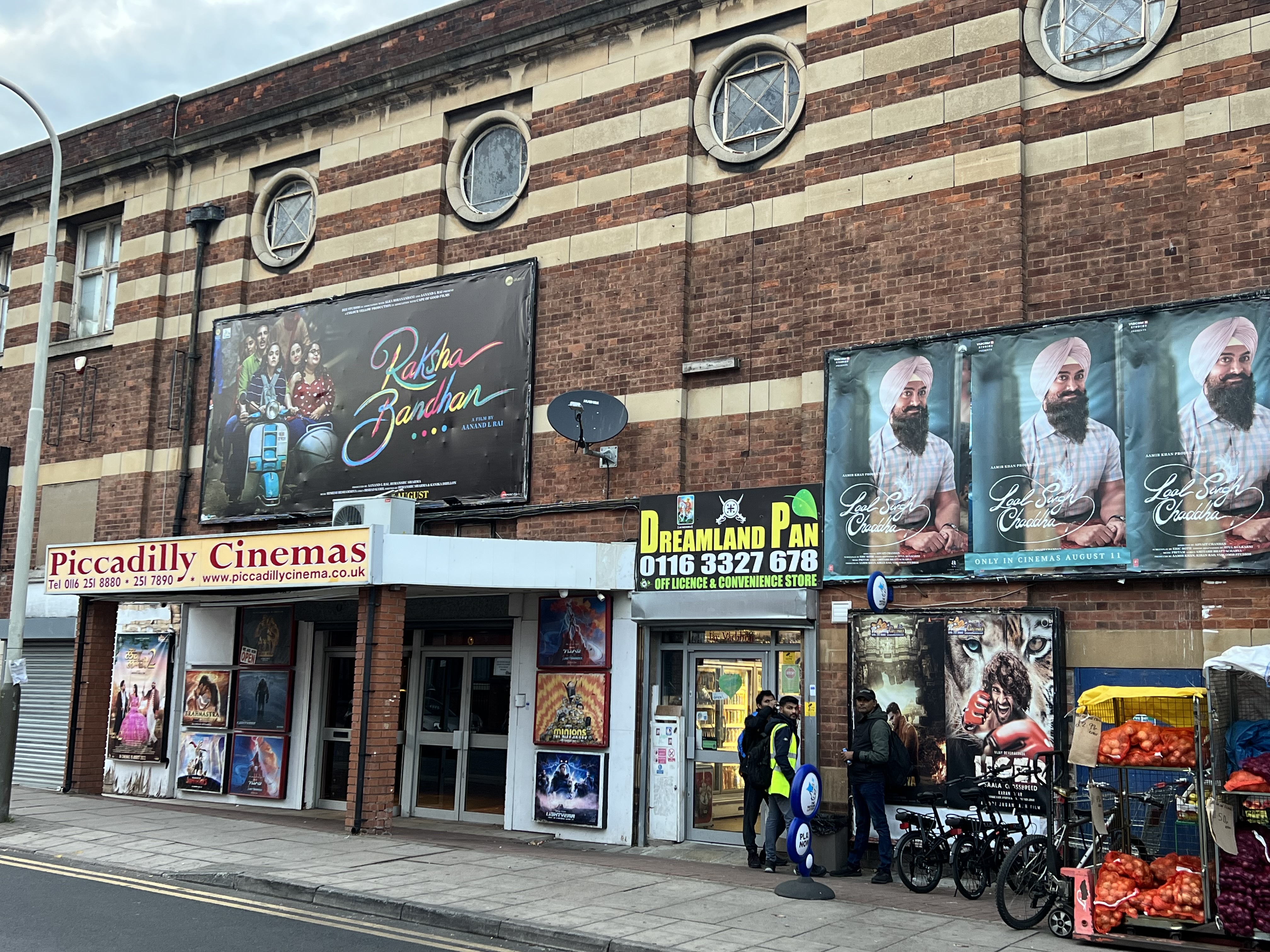
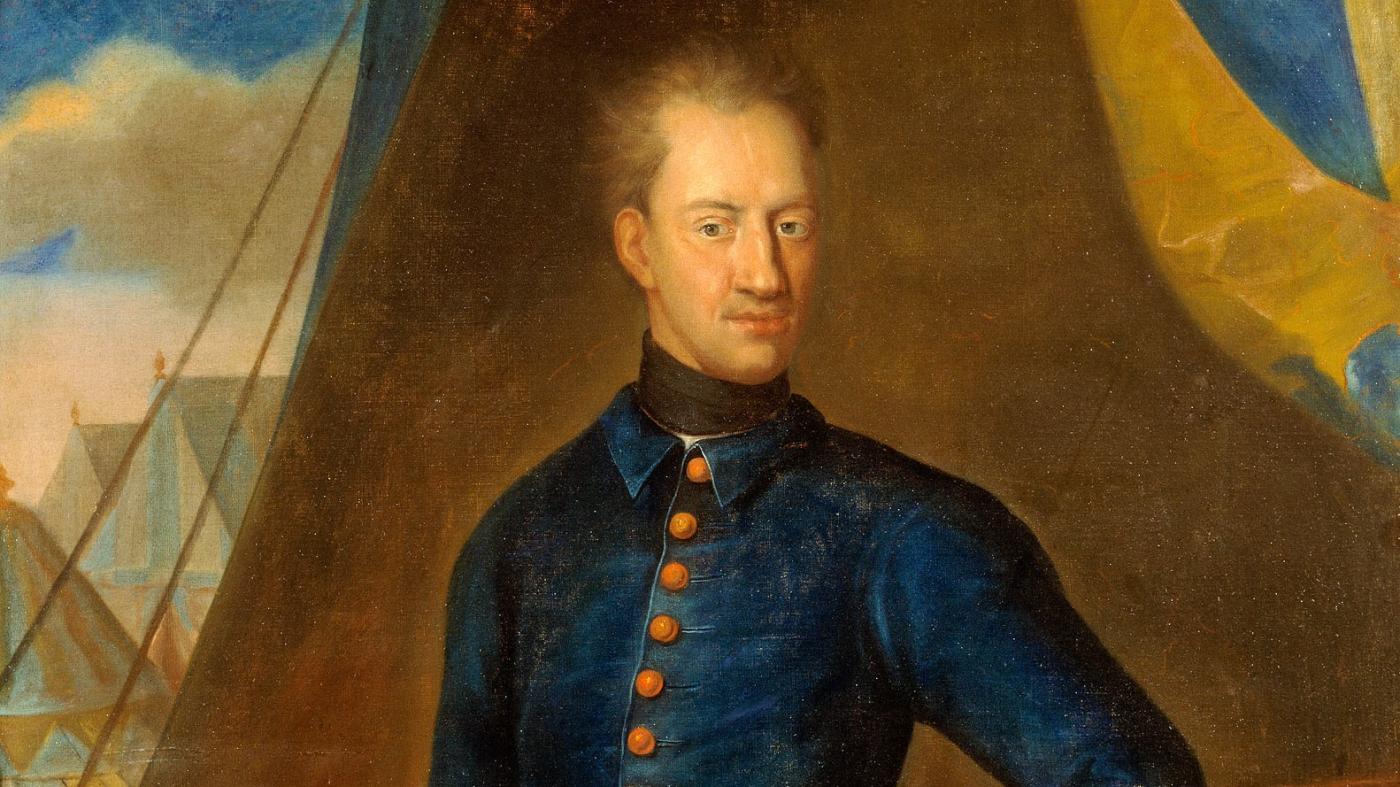
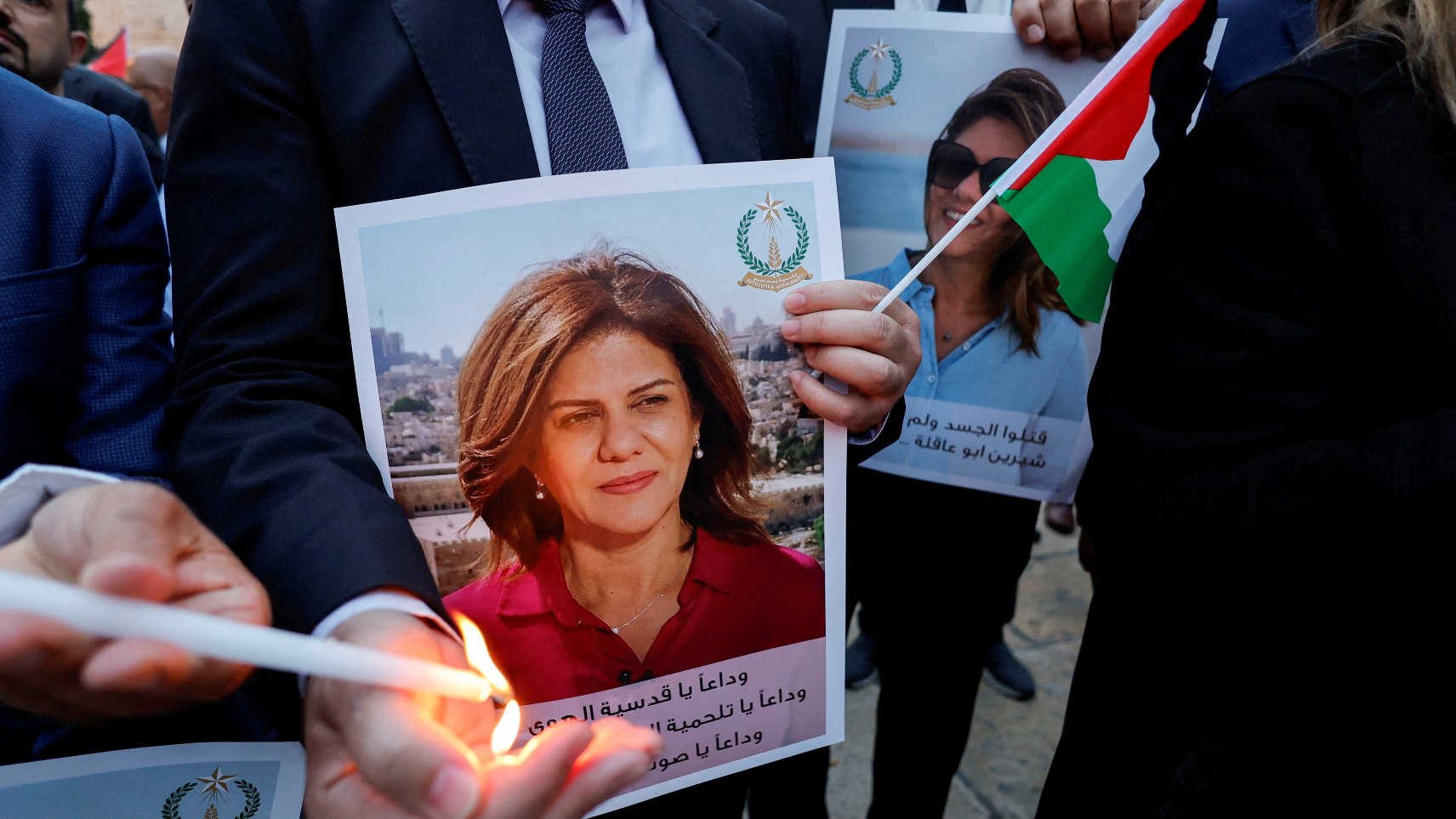

.jpg.webp?itok=ni8Satu3)
